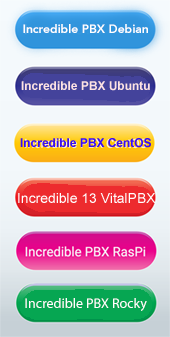RSS Made Really, Really Simple
 If the simplicity and headline style of MacSurfer’s Headlines News and Technology News Network leave you wishing there were similar sites to handle your other favorite topics, then you’re ready for Really Simple Syndication, RSS. a lightweight XML metadata format designed to handle headlines and web content. Instead of a single talented company digesting web pages from thousands of providers as MacSurfer does, RSS uses a different paradigm. RSS decentralizes headline-building by encouraging all web providers to create regular "feeds" of their sites containing headlines and content. The content may be the same as the actual web pages, or it may be a subset with links to the complete web pages. Instead of your having to visit hundreds of web sites every day, you use an RSS Reader to do the leg work for you. All you have to do is tell it where to look periodically for items of interest to you.
If the simplicity and headline style of MacSurfer’s Headlines News and Technology News Network leave you wishing there were similar sites to handle your other favorite topics, then you’re ready for Really Simple Syndication, RSS. a lightweight XML metadata format designed to handle headlines and web content. Instead of a single talented company digesting web pages from thousands of providers as MacSurfer does, RSS uses a different paradigm. RSS decentralizes headline-building by encouraging all web providers to create regular "feeds" of their sites containing headlines and content. The content may be the same as the actual web pages, or it may be a subset with links to the complete web pages. Instead of your having to visit hundreds of web sites every day, you use an RSS Reader to do the leg work for you. All you have to do is tell it where to look periodically for items of interest to you.
Some RSS Readers are free, and some you have to pay for. For the Windows platform, we recommend NewzCrawler. There’s also NewsGator Outlook Edition which, as its name implies, creates RSS feeds in a folder within Microsoft Outlook. For your iPod (Yep, it’s true!), there’s Pod2Go. For your Treo 650 smartphone, there’s mNews. And, for your Mac or Mac mini, no one does RSS better than Ranchero’s NetNewsWire. Free and enhanced versions of Ranchero’s reader are available. The enhanced version is well worth its modest cost. Here’s how it works. Just define the web sites with RSS feeds that you’d like to track and tell NetNewsWire how often to retrieve the feeds. That’s it for the basics. What you’ll see is a 3-pane window (see inset) similar to many email clients. Your RSS sites are listed on the left, the headlines for each site appear at the top right, and the contents (known as an item in RSS parlance) for each story is shown in the bottom right pane. As with good email clients, NetNewsWire remembers which items you’ve read. And the dock icon shows how many unread stories exist in your feeds. You also can import and export your subscriptions for use in other readers, and there’s a Weblog editor which makes quick work of posting RSS content to your favorite blog. NetNewsWire also includes a Sites Drawer. It provides one-click access to hundreds of great RSS feeds. Here’s our own list of favorites in OPML format which can be imported directly into NetNewsWire to get you started. You also can find thousands more on the Complete RSS web site. There’s news, technology, sports, Fark, business and finance, Amazon, programming, humor, tech bargains, opinion, politics, entertainment, sex … well, actually, we just threw that in to see if you still were awake. Finally there are numerous scraped feeds or bootleg feeds. These are third-party crafted RSS feeds of web sites that do not yet (and may never) produce RSS feeds of their own such as WhiteHouse.gov and television program guides. There’s even a site that will create made-to-order RSS feeds for a modest fee. We’ll leave the legal issues these feeds may raise for another day.
Take a look at what the RSS feed for Nerd Vittles looks like. It’s not much different than the actual web page you’re reading here. Actually, with Complete RSS, it is the web page you’re reading here. NetNewsWire goes one step beyond the Complete RSS approach and actually builds the contents pane from the XML code without reliance on any of the page’s actual HTML code. This obviously facilitates off-line browsing. While RSS content originally was limited to text, all that has changed. You’ll see the same rich content (with images) that you’re used to with a web browser. Just like MacSurfer, the advantage in switching to RSS is that you can comb through hundreds of headlines in just a few minutes rather than waiting for hundreds of web pages (and pop up ads) to load. If you don’t yet own a Mac, there are dozens of other RSS readers available for almost every operating system.
The latest news in the browser and RSS universe is Firefox 1.0, the web browser that’s taking the world by storm. It supports RSS as an integral part of the browser. And chances are there’s a version for your computer right here. To use RSS within Firefox, just download and install the Sage RSS plug-in. All you need to perfect the reading of most blogs is a simple style file. Just Ctrl-click to download and save ours to your documents directory and configure Sage to use it (Tools, Sage, Options, Settings, Use Custom Style Sheet). Now you’re ready to start saving RSS links to read with Sage and Firefox. We recommend you create a bookmarks folder (Bookmarks, Manage Bookmarks, New Folder) just for RSS links since Firefox can periodically update your feeds. Here’s our RSS feed to get you started. Once you bookmark our link, choose Tools, Sage, and click on Nerd Vittles in your Sage-panel bookmarks folder. Voil√ɬ†!
Finally, there’s one unsung advantage of RSS feeds over traditional web pages that is huge in our book. With web pages, you never really know when the contents of a page have been updated. And with hit-and-miss web caching, you may not know even when you return to a site. RSS solves this problem transparently. When a page is updated, the link to the page in your RSS feeds list automatically changes back to unread. For those of us that write HOW-TO articles and don’t always get it quite right in version 1.0, RSS provides a great way to alert readers that something important has changed in the story. Give RSS a try, and you’ll see why millions are discovering that it’s a better way to enjoy the web.
[WM: And here’s one of those updates I was talking about. Another great RSS reader for the Mac platform was released just yesterday. The betas of NewsFire got rave reviews. And, if money matters, it’s half the cost of NetNewsWire.]


 JUST RELEASED: Visit the Incredible PBX Wiki
JUST RELEASED: Visit the Incredible PBX Wiki